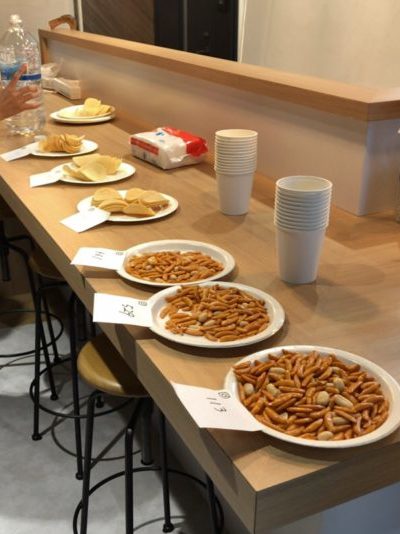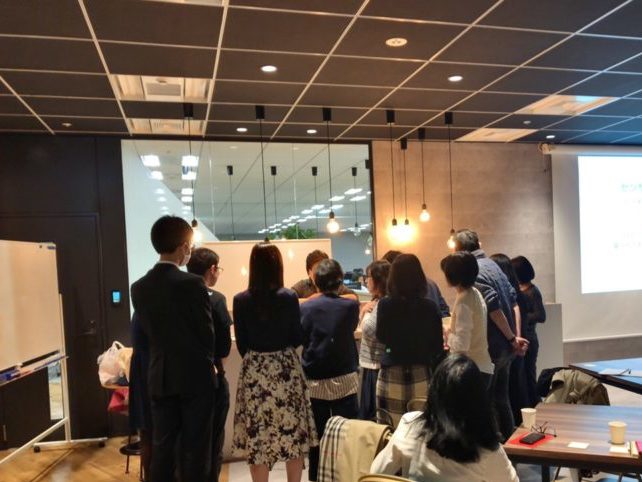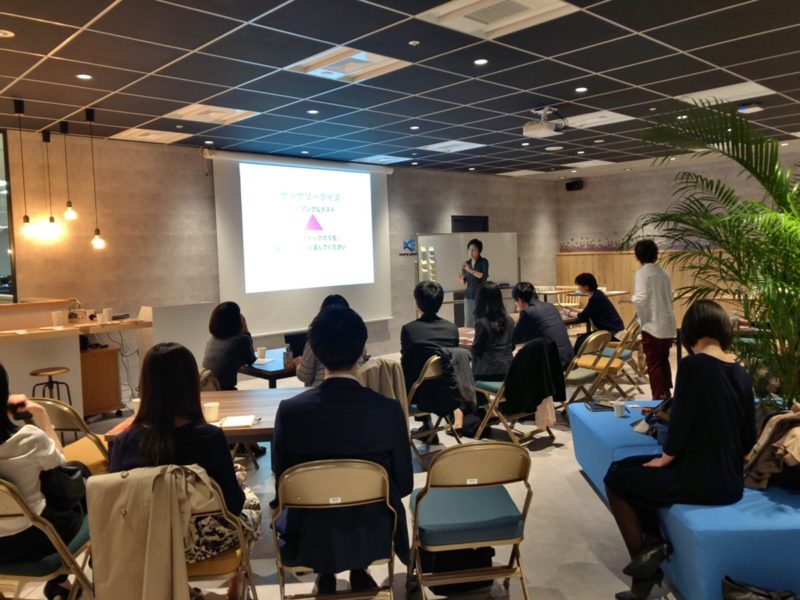In Tokyo on April 26, 2019, a sensory workshop was held with around 20 Japanese professionals from diverse backgrounds. Attendees included individuals from industries such as marketing research agencies, fragrance, and printing companies, each with varying degrees of knowledge in sensory research. One participant expressed curiosity, stating, “I’m not familiar with sensory research, but it sounds intriguing!” Another attendee, who had experience in consumer research, voiced a desire to learn more about sensory evaluations. Despite their differing backgrounds, all participants shared a common goal of increasing their knowledge regarding sensory research and evaluations.
Starting with Basics
During the workshop, we covered the fundamental aspects of sensory evaluations, including sensory attributes and test requirements. We also delved into sensory methods, such as the forced-choice discrimination test and descriptive analysis.
By starting with the basics, we ensured everyone was on the same page, which helped to prevent anyone from dropping out of the workshop. We also covered more specific content, including scale, attributes, and statistical techniques.
The descriptive analysis sparked interest
During the workshop, the participants were particularly interested in Descriptive Sensory Analysis, a method that was new to many consumer researchers. Some attendees even expressed interest in Japan’s panel recruiting, training, and validation process. Based on this positive response, we plan to hold additional workshops on this topic.
Sensory Game – How close or different?
During break time, we held a Sensory Game called “Triangle Taste Test,” where participants had to identify one different snack. We provided two sets of samples – Japanese potato chips and Kaki-no-Tane (柿の種). The taste-testing games were engaging and kept participants striving to find the correct answers.

Sensory Approaches to Broader Areas
The workshop was valuable in revealing the Japanese professionals’ curiosity about sensory perceptions and desire to learn more. The feedback from the participants indicated that there are wide-ranging applications of sensory approaches. We hope that the sensory research approaches will assist in understanding the sensory stimuli that people receive intuitively and create stimulating experiences for people with products and services from Japan to other countries.

